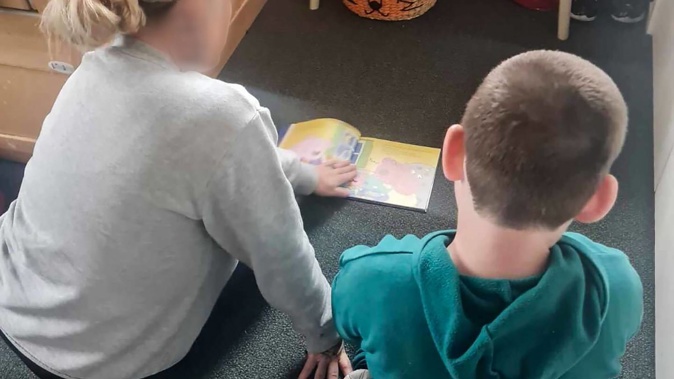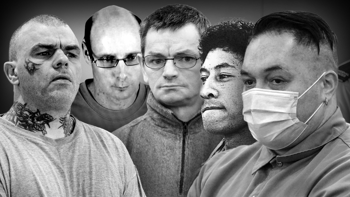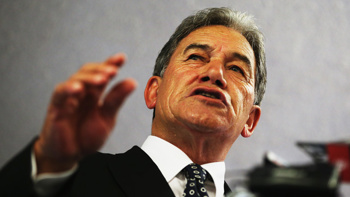
The case of a mum trying to change her son’s surname after his dad left him brain-damaged has prompted a warning to parents who may not know how much control an abuser still has over their kids.
Even sole carers who have had no contact with their child’s other parent for years technically still have to consult them over decisions such as where they can live, medical treatment and their education, a family lawyer said.
One Tauranga mother recently hit such a roadblock after trying to change her 9-year-old son’s surname, which he shares with his father.
In 2013, the boy’s father shook him during a nighttime wake-up when the child was only 29 days old, causing permanent brain damage. The boy now has a developmental age of about 2 years and 6 months.
The father has had no contact with the child in nearly a decade and is in prison, but the mother was told by the court she must notify the father of her application and give him a say in the decision on whether his surname can be changed.
“You might say the law possibly doesn’t protect people with primary care as much as it could in relation to some guardianship issues,” said senior family lawyer Jeremy Sutton.
/cloudfront-ap-southeast-2.images.arcpublishing.com/nzme/7S5EZPKDHZHO3CF6Q3KTQ6XJGU.jpg)
The 9-year-old boy has a developmental age of about 2 years and 6 months, his mother said.
“It just demonstrates how difficult it is to make a decision on your own on something like a name,” he said.
“It’s a significant thing to change someone’s name because it’s a sense of identity and culture . . . it’s all about the welfare and the best interests of the child.”
It would be “really unusual” for a court to grant the application without seeking the views of the other parent.
“Judges are really reluctant to change a name unless there’s a good reason to change a name,” Sutton said.
“When people talk about a clean break from a relationship, that may be a clean break physically but there are still some aspects that are continuing.”
Other things people might not realise their children’s other parent may have control over include the location they live in, overseas travel, medical treatments and education.
Technically, a parent in the Tauranga mother’s situation would still need to seek permission from the father to move to a different city.
Yesterday an Internal Affairs spokesperson said a parent could apply to the court to have the other parent removed as a legal guardian. Abuse of a child and criminal convictions are some of the factors the court takes into account.
But Sutton said it was very rare for someone’s guardianship rights to be “eroded or lost”, and there were only a handful of applications each year to remove someone as a guardian.
“I have never been able to remove a guardian and my colleagues in family law have been the same,” he said, noting the right to be a guardian was a “fundamental one”.
Having some type of automatic removal of guardianship upon conviction of serious offending against the child would raise issues of its own, he said.
“The taking away of guardianship rights is seen as an extreme step . . . it is seen as positive for children to preserve their relationship with both their parents.
“It is easier to have a guardian appointed for a particular purpose or to exclude a guardian from a particular decision. This is a more limiting role. An example may be the decision around whether to have a Covid vaccination or not for a child may be left to one party.”
The Justice Minister has been contacted for comment.
/cloudfront-ap-southeast-2.images.arcpublishing.com/nzme/LCS4G65J6BGJJB5M7KALYOBIA4.jpg)
The baby was shaken by his father when he was just 29 days old, leaving him permanently brain-damaged.
DOMESTIC VIOLENCE - DO YOU NEED HELP?
If you’re in danger now:
- Phone the police on 111 or ask neighbours of friends to ring for you.
- Run outside and head for where there are other people.
- Scream for help so that your neighbours can hear you.
- Take the children with you.
- Don’t stop to get anything else.
- If you are being abused, remember it’s not your fault. Violence is never okay
Where to go for help or more information:
- Shine, free national helpline 9am- 11pm every day - 0508 744 633 www.2shine.org.nz
- Women’s Refuge: Free national crisis line operates 24/7 - 0800 refuge or 0800 733 843 www.womensrefuge.org.nz
- Shakti: Providing specialist cultural services for African, Asian and Middle Eastern women and their children. Crisis line 24/7 0800 742 584
- It’s Not Ok: Information line 0800 456 450 www.areyouok.org.nz
Melissa Nightingale is a Wellington-based reporter who covers crime, justice and news in the capital. She joined the Herald in 2016 and has worked as a journalist for 10 years.
Take your Radio, Podcasts and Music with you









